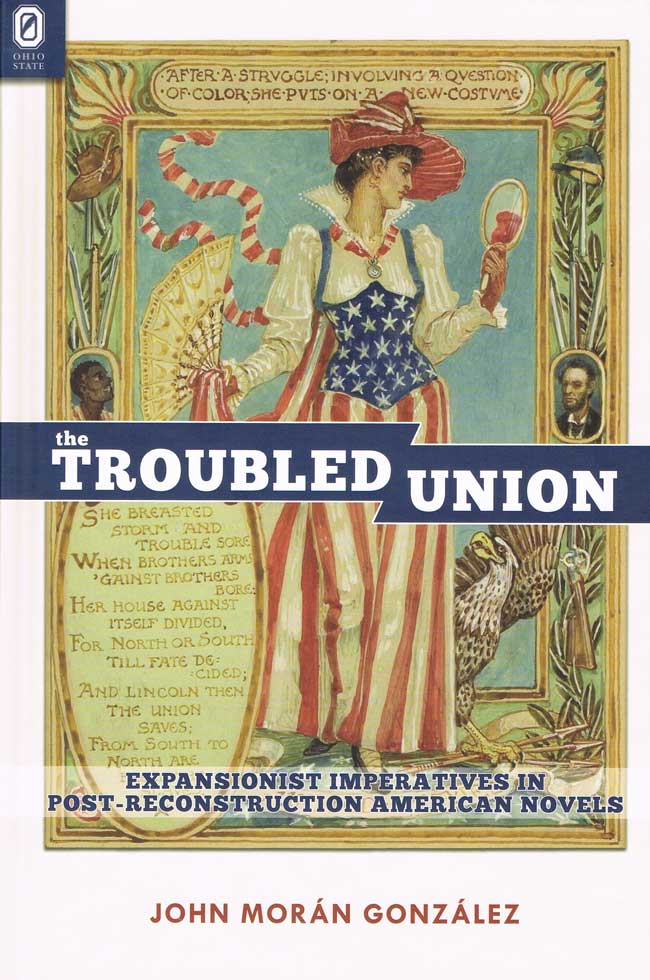The Troubled UnionExpansionist Imperatives in Post-Reconstruction American NovelsJohn Morán González |
 9/2/2010 Literary criticism/American/General 146 pp. 6x9  $44.95 cloth 978-0-8142-1129-8 Add cloth to shopping cart $14.95 CD 978-0-8142-9228-0 Add CD to shopping cart Shopping Cart Instructions Review/Change Shopping Cart & Check-out | |||
|
Table of Contents
Explore More |
“The Troubled Union is . . . an impressively incisive examination not just of a neglected subgenre, but of the slippery nature of racial fantasy as a vehicle for national reunion in American literature.” —Western American Literature “In The Troubled Union: Expansionist Imperatives in Post-Reconstruction American Novels, John Morán González presents insightful and persuasive new readings of widely read and much studied novels, links aesthetic choice to political and ideological issues in generative ways, and advances our understanding of the importance of thinking about the nation in the world and the world in the nation effectively. This work is, without a doubt, relevant to the study of national allegory, the culture of empire, and the social construction of realism.” —George Lipsitz, professor of Black Studies, University of California, Santa Barbara In The Troubled Union: Expansionist Imperatives in Post-Reconstruction American Novels, John Morán González traces the imperialist imaginings behind literary efforts to reunite the United States after the trauma of the Civil War and Reconstruction. This innovative study explores how the U.S. historical romance attempted to rebuild a national identity by renovating Manifest Destiny for the twentieth-century imperialist future through courtship and marriage plots. Yet even as these literary romances promised expansive national futures, the racial and gender contradictions of U.S. democracy threatened to result in troubled unions at home and fractious ventures abroad. Canonical authors such as Henry James, popular authors such as Helen Hunt Jackson, and rediscovered authors such as María Amparo Ruiz de Burton provide the dramatic narratives examined in this book. Employing theoretical perspectives drawn from American Studies and Latin American Studies, González highlights the importance of the “domestic”—understood as both the domestic boundaries of the nation and of the home—as a key site within civil society that maintained and renewed imperialist national subjectivities. The Troubled Union combines the formal analysis of literary genre with interdisciplinary cultural studies to elucidate just how the imperial national allegory deeply structured the U.S. cultural imagination of the late nineteenth century.
| |||


 John Morán González
John Morán González